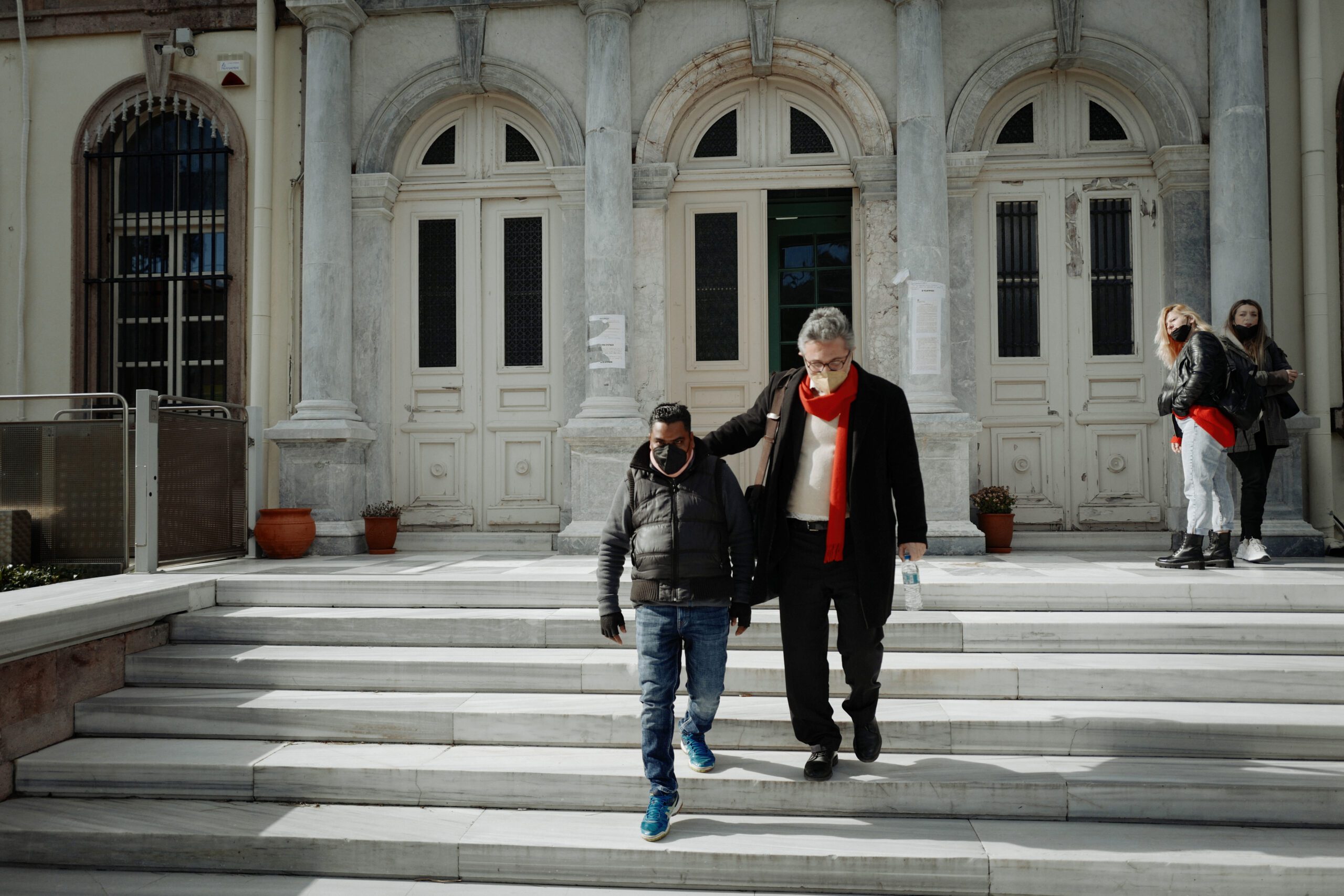Partnering To Educate and Empower Refugees and Displaced People
HIAS staff around the world work with NGOs, faith leaders, and communities to increase refugees’ and forcibly displaced people’s knowledge about their basic legal rights, including: how to safely and legally access territory; processes and procedures to obtain asylum or other protective legal status; and how to access rights to healthcare, education, work, shelter, and other basic assistance. HIAS provides public information through “know your rights” seminars, legal clinics, and individual intakes/consultations.
- In Costa Rica, HIAS conducts “know your rights” information sessions for recently displaced Nicaraguans fleeing political turmoil at the Norther border while providing training to border officials about refugees’ rights and needs.
- On the island of Lesvos, at Greece’s Eastern border with Turkey, HIAS provides similar trainings for Syrians, Afghans, and Iraqis who have sought international protection in Europe.
- In Juarez, Mexico, HIAS provides public legal information to refugees fleeing persecution across Central America and Cuba. HIAS provides information about Mexican and U.S. asylum procedures since many in Juarez are there due to the “Remain in Mexico” policy which requires Spanish speaking asylum seekers traveling through Mexico to wait in that country for their asylum hearing date in the U.S.
Individual Representation by Staff Attorneys and Pro Bono Lawyers
HIAS staff attorneys, along with HIAS’ growing network of pro bono volunteer lawyers, provide free legal orientation and direct representation to asylum seekers and other forcibly displaced persons seeking protection and stability outside of their home countries. In some locations, HIAS staff attorneys and pro bono lawyers are also able to provide legal aid to vulnerable immigrants on other issues, including family law matters, access to social and economic rights, and humanitarian requests. Combined with the provision of public legal information, individual representation forms the core of HIAS’ legal protection programming.
- In the U.S., Costa Rica, Israel and Greece, HIAS provides individual legal assistance and representation during legal proceedings, with a focus on asylum, humanitarian visas, and detention matters. HIAS lawyers and pro bono volunteers also provide refugees with individual advice and representation in family matters including custody and domestic violence cases.
Strategic Litigation to Advance Refugee Rights
HIAS engages in strategic litigation to push for positive legal changes to protect the rights of refugees and displaced people to access territory, apply for asylum or other related legal status, and utilize their rights to health, shelter, education and work. The aim of this work is to secure protection for broad groups of refugees or other forcibly displaced people. This litigation usually involves partnership with other NGOs, community organizations, and law firms, and is initiated after careful review of cases to initiate or join. In parallel, HIAS engages in public advocacy and communications through traditional and social media to advance refugee rights.
- In Greece, HIAS successfully convinced courts to allow asylum seekers to legally marry and to allow a transgender refugee to change the gender marker on her identification documents
- In Israel, HIAS joined advocates to successfully challenge the “Deposit Law” – which permits the government to hold 20% of refugees’ income until they permanently leave the country – leading to a reduction in withholding to 6% for refugee women
- In Costa Rica, based on HIAS’ advocacy, the government reversed a policy that required asylum seekers to apply for legal protection only in the capital, increasing access to refugees all over the country to access asylum procedures
Wraparound Services and Robust Referrals to Non-legal Service Providers
To help our clients integrate and remain protected throughout their legal procedures, HIAS works to ensure they can access other services, including medical care, mental health support, safe and affordable housing, vocational training and assistance accessing dignified work. HIAS provides clients with wraparound services and support by providing individual assistance, community-based education about rights and services, and referrals to services that HIAS is unable to provide, facilitating access to client-centered protection and paving the way to full integration and community empowerment.
- Multiple HIAS affiliates in the U.S. provide wraparound services to refugees receiving legal assistance, enabling clients to receive case management services as needed and access appropriate, focused care.
- In Costa Rica, Greece, and Israel, HIAS refers asylum seekers to partners to ensure their access to health care, housing, education, and vocational services.
